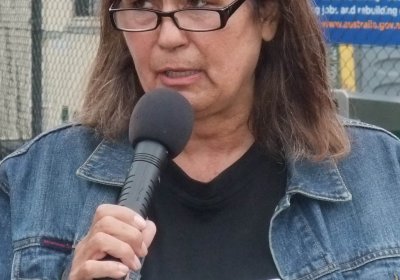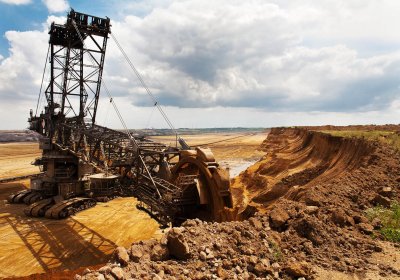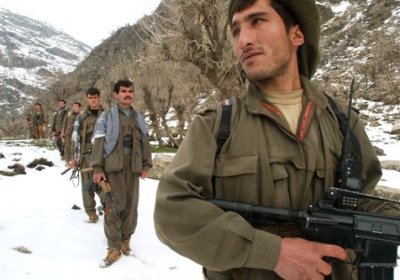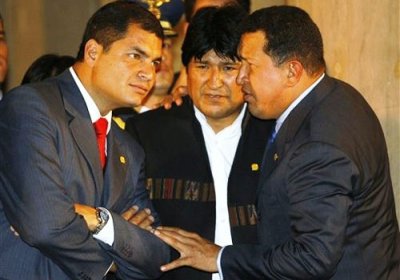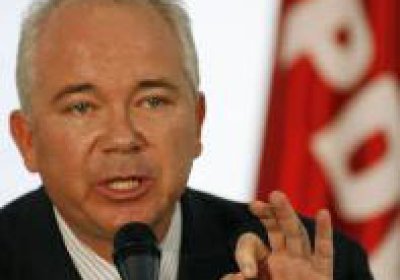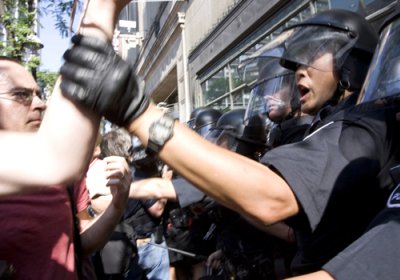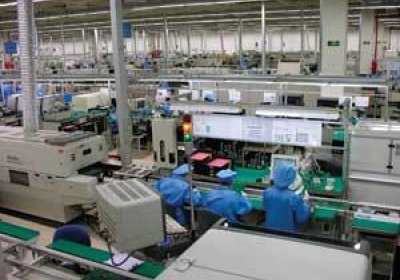Socialist Alliance Senate candidate for the upcoming federal election, Sharon Firebrace, has dismissed Labor’s proposal, to send asylum seekers to an off-shore processing centre in Dili, as “another chapter in our country’s racist shame".
Issue 843
News
The New Way Summit, held in Melbourne over July 1-4, brought together around 100 Indigenous and non-Indigenous people from about Australia to discuss the issues confronting the struggle for Indigenous rights. A big focus of the summit was on the issues of genocide, sovereignty and treaty.
This was the third in a series of New Way Summits. The first one took place in Canberra in January.
The summit was successful in bringing together indigenous activists from Darwin, New South Wales, Queensland, regional Victoria and Melbourne, as well as non-Indigenous supporters.
Despite freezing weather, 30 people took part in a community speak-out against racism on July 2 in Newtown, in Sydney’s inner-west. Initiated by the Socialist Alliance, speakers included Greens deputy mayor of Marrickville Fiona Byrnes, refugee rights activist Saradha Nathan, Ellouise Davis from the Newtown Neighbourhood Centre, Hadi Zaher, Reverend Dave Smith from the Hold Trinity Church in Dulwich Hill, Peter Robson from Stop the Intervention Coalition and Pip Hinman, Socialist Alliance candidate for Grayndler.
25 intrepid activists left on July 2 for Alice Springs as part of a Justice Ride to show solidarity with Aboriginal people fighting against the NT intervention. They will take part in the Defending Indigenous Rights: Land Law Culture convergence in Alice Springs from July 6 to 9.
South Australian independent Bob Such announced on June 28 he would introduce a private member's bill into the state parliament that would, in effect, ban the wearing of the burqa or the niqab in banks and government buildings.
Such claimed his bill would not be discriminatory and would target any face covering where security might be a concern. However, all his public statements have specifically raised the burqa and its possible use in criminal activity.
Multicultural affairs minister Grace Portolesi said SA police have said they have no such concerns about the burqa.
National Tertiary Education Union (NTEU) members at the University of New South Wales (UNSW) began industrial action on June 30 to pressure management to reach agreement with the union on a range of claims. They want reinstatement of job security protections for contract research staff; improved conditions for casual and fixed-term staff; Indigenous employment targets and an increase in paid parental leave from 26 to 36 weeks.
Eighty people gathered at the State School Teachers Union offices in Perth for the Socialist Ideas Conference over the weekend of June 26-27. Speakers included Jeyakumar Devaraj, Socialist Party of Malaysia MP, and Richard Downs, spokesperson for the Alyawarr People's Walk-off in the Northern Territory.
The Canterbury Bankstown Peace Group, with the Justice for Aafia Coalition, is calling for the release of Dr Aafia Siddiqui. The Pakistani doctor was found guilty on February 3 of shooting US soldiers in July 2008, while in Afghan police custody.
Siddiqui was accused of being an Al Qaeda agent and has allegedly spent time in secret prisons in Pakistan and in the US prison in Guantanamo Bay. Despite this, she has not been charged with any terrorist offences but only with firearms offences allegedly committed during her capture.
Workers from Kennon Auto in Melbourne have not received a pay rise for the past three years. They stopped work on July 1 because their boss is refusing to negotiate a collective agreement.
The workers make parts for Toyota. They are ex-Nylex workers who had to fight to keep entitlements after Nylex went into receivership. Some of Nylex’s product lines were sold to Kennon Auto.
US-Palestinian professor Saree Makdisi and Canadian-Palestinian lawyer Diana Buttu spoke on June 30 as part of a national tour to promote the international campaign for boycott, divestment and sanctions against Israel.
At the public meeting, Makdisi compared laws in apartheid South Africa with those in Israel and said “There are exact equivalent laws in Israel of all the African apartheid laws.”
He said the discrimination “begins with kids entering day care and continues for the rest of their lives”.
BRISBANE — Former Gold Coast-based Dr Mohamed Haneef is suing former Howard government immigration minister Kevin Andrews for defamation, the July 2 Courier Mail said.
Haneef is also making a separate claim against the federal government for unlawful arrest and misconduct in public office. Haneef was arrested in July 2007 after his mobile phone SIM card was linked to failed terror attacks in Britain.
He was charged under anti-terror laws and arrested, but was released after 25 days after the case collapsed. Andrews then cancelled Haneef’s visa.
Pip Hinman is running in the Australian federal election 2010 for the lower house seat of Grayndler.
Green Left Fighting Fund
The number of “High Net Worth Individuals” (HNWIs) in Australia — those with more than US$1 million in investable assets, excluding the family home — soared to 173,600 last year. This, according to the latest World Wealth Report, was an increase of 34.4% on the year before.
The June 30 Sunshine Coast Daily said: “What's more impressive is Australia's ranking in the global population of HNWIs. Out of 71 countries, Australia has the 10th biggest population of HNWIs in the world, in front of Brazil and just behind that millionaire's paradise of Switzerland.”
Analysis
In a July 6 speech to the Lowy Institute Gillard announced that her government was pursuing a regional agreement for offshore processing of "unauthorised arrivals".
In 2006, the Victorian government committed to introducing a “landmark” Climate Change Bill. At this time, there was growing momentum around the world for legislation that would cut greenhouse gas emissions. This momentum was largely in response to the glacial pace of the international climate change negotiations.
In her opening remarks as Australia’s new prime minister, Julia Gillard said she believed climate change was real and was caused by human activity. What she left unsaid was that she doesn’t believe in doing much to stop it.
Former PM Kevin Rudd’s rapid nosedive in the opinion polls coincided with Labor’s April decision to dump its proposed emissions trading scheme until 2013.
The scheme itself was radically flawed, but many people still associated it with action on climate change. More than with any other issue, Labor was punished for its perceived backflip on climate.
Thirty one Rohingya refugees in a detention centre in Darwin ended their 12-day hunger strike on June 25. They were protesting against the Australian government’s delay in processing their asylum claims, an average of nine months after their boats’ interception.
From the standpoint of conventional political analysis, Julia Gillard has had a spectacular start to her reign as prime minister.
She wrested the position from Kevin Rudd with minimal bloodshed, announced she was going to neutralise the mining tax controversy by negotiating with the mining billionaires and was rewarded with a dramatic turnaround in the opinion polls.
Leichhardt Friends of Hebron can be very proud of the Festival of Friendship for Hebron it held over June 25-26.
The event raised more than $5000 for a kindergarten in the impoverished village of Um al Khair in the South Hebron hills. It also won a significant political victory over the ban the previous Leichhardt Council administration placed on a Palestinian photo exhibition two years earlier.
Friends, family and comrades who loved him were saddened by the June 12 death of Ronald William Bailey. He was buried on June 17 at Wingham after a memorial service at St John’s Anglican church in Taree. His long-time friend, Reverend Canon Keith Dean-Jones, gave the eulogy in tribute to Ron’s active political commitment to the masses of workers, small farmers, welfare recipients, Indigenous people and the less fortunate and oppressed.
The Northern Territory intervention has reached its third year and, despite several government commissioned reports and outside expert analysis claiming that it has failed to achieve its aims, aspects of it look likely to be extended to other parts of the country.
On June 21, the Senate voted to extend one of the aspects of the intervention, welfare quarantining, to more people in the NT and allow the government the option to extend it to other parts of Australia after a year.
The detention of about 150 asylum seekers in a disused mining camp at Leonora, near Kalgoorlie in remote Western Australia, is a return to the dark days of previous Coalition prime minister John Howard.
Under Howard, asylum seekers were detained at a disused defence department shooting range at Woomera in South Australia. Both cases involve refugees being detained at remote prison camps and only allowed out accompanied by detention centre staff.
Just after becoming prime minister, Julia Gillard told media on June 24 she could understand “the anxiety and indeed fears that Australians have when they see [refugee] boats”. She did not cite evidence for this claim. She said that, as PM, she would explain to the Australian people “what we are doing to manage our borders and what we are doing to manage asylum seeker flows”.
The Queensland Crime and Misconduct Commission (CMC) recently released a report highly critical of the police investigation into the case of Palm Island Aboriginal man Mulrunji Doomadgee, who died in police custody in November 2004. The CMC gave police commissioner Bob Atkinson 14 days to take disciplinary action against six officers involved.
Atkinson was due to make his decision by July 2, but an injunction filed on behalf of the officers extended the deadline until July 6
Mel Barnes, a well-known Tasmanian political activist, will contest the seat of Denison in the upcoming federal elections, for the Socialist Alliance. Barnes is a leading climate and renewable energy campaigner involved in Climate Action Hobart.
She has also campaigned for women’s rights, Palestine solidarity, refugee rights and Latin American solidarity. In 2006, Barnes went on a solidarity tour of Venezuela to learn about the revolutionary changes occurring there. Barnes stood for the Socialist Alliance in the recent state elections.
On July 2, 100 people rallied at St Georges Terrace in response to the Western Australian Director of Public Prosecutions (DPP)’s decision not to lay criminal charges against the two guards involved in the death of Mr Ward.
The emergency action was called by the Deaths in Custody Watch Committee and was addressed by Marianne Mackay and Marc Newhouse from DICWC.
Some wore T-shirts that read: “What Eddie Mabo was to Native Title, let Mr Ward be to the justice system.”
World
In a July 7, press conference in Dili, Luta Hamutuk a prominent civil society activist group in Timor Leste condemned the new Australian policy on refugees as "racist".
On July 1, striking workers at a Japanese-owned electronics factory in the Chinese city of Tianjin stalled production for a third day and vowed to continue their fight until bosses agreed to better pay and conditions, the Morning Star said that day. It is the latest in a spate of work stoppages to hit foreign transnationals operating in China.
Workers have hung large banners outside the factory gate reading: “Human traffickers are not welcome”, “We want a pay rise” and “We want fair treatment”.
A nearly two-month-long student strike that shut down all 11 campuses of the University of Puerto Rico (UPR) ended in a decisive victory for the students.
The students’ inspiring unity, determination and creativity serve as a magnificent example of how to fight and win in the face of neoliberal attempts to balance budgets in this era of global austerity.
The strike began April 21 as a 48-hour stoppage at UPR’s main campus of Rio Piedras to protest US$100 million in budget cuts, a sharp increase in student fees and the administration’s unwillingness to negotiate with student activists.
Seven oxygen machines donated to the Palestinian Authority by a Norwegian development agency were seized by Israeli officials, Ma’an news agency said on June 25. The Ramallah-based PA health ministry said the machines were en route to hospitals in Gaza and the West Bank.
The ministry said in a June 24 statement that Israeli officials confiscated the machines, claiming the generators attached “came under the category of possible use for non-medical purposes” if they were delivered to Gaza.
On June 1, the Kurdish Workers Party (PKK) announced an end to its 13-month unilateral ceasefire. Since 1984, the PKK has waged an armed struggle against the Turkish state for Kurdish self-determination.
A day earlier, imprisoned PKK leader Abdullah Ocalan announced that he was withdrawing from negotiations. He cited a disconnect between the Turkish government’s promised reforms and continued violent repression of Turkey’s Kurdish population.
The Bolivarian Alliance for the Peoples of Our America (ALBA) released a statement on June 28 reaffirming its commitment to the Honduran people’s struggle for a return to democracy one year after the coup that overthrew president Manuel Zelaya.
ALBA is an anti-imperialist alliance founded in 2004 by Cuba and Venezuela. Its members include Bolivia, Ecuador, Nicaragua, Dominica, Saint Vincent and the Grenadines, and Antigua and Barbuda.
Under Zelaya, Honduras joined ALBA, which suspended Honduras’s membership after the coup. The regime has since withdrawn from ALBA.
At dawn one year ago, on June 28, soldiers invaded the home of Honduran president Manuel Zelaya and flew him to Costa Rica.
It was a frightening throwback to the days when military men, backed by a local oligarchy and often the United States, could overturn the results of democratic elections.
It would also turn out to be a pivotal moment for relations between the US and Latin America. A new generation of left-of-centre governments in Argentina, Bolivia, Brazil, Chile, Ecuador, Paraguay, Uruguay, and Venezuela were all hoping for a new relationship with Washington.
The Punjab government has been given three months to decide the fate of 68,000 hectares of agricultural land. The land is owned by the government and has been cultivated by tenants for more than 100 years.
The tenants have demanded land ownership rights. Despite government promises, the land has not been allotted to them.
The three months’ notice was given at the end of a huge peasants rally on June 29 at Okara. The rally was organised by the Punjab Tenants Association (AMP) on the eve of the anniversary of 10 years of the tenants’ struggle for land ownership rights.
The head of Venezuelan state oil company PDVSA said on June 24 that the government is to nationalise 11 oil rigs previously operated by a US petroleum firm. This comes after the company, Helmerich & Payne, closed down production and refused to negotiate a new services agreement.
PDVSA president Rafael Ramirez said the nationalisation would “boost domestic production of hydrocarbons and strengthen the policy of full oil sovereignty”.
The 17th LGBTT (lesbian, gay, bisexual, transvestite and transsexual) Pride Week ended with a Pride March in Taksim, central Istanbul, on June 28, Bionet.org said the next day. It said more than 3000 people took part.
Bionet.org said the crowd, gathered around a huge rainbow flag in Taksim Square, were at first prevented from marching by police. The crowd protested the police action, shouting slogans for about an hour.
The police then allowed the crowd to march “without placards or slogans”.
Iceland’s Prime Minister Johanna Sigurdardottir married her long-time partner on June 27 as a new law legalising same-sex marriages came into force, Telegraph.co.uk said on June 28.
On June 12, Iceland's parliament passed legislation allowing gay marriage. Telegraph.co.uk said gay couples could previously enter into civil partnerships with the same rights as married couples, but this had not been considered a formal marriage.
Italy reeled under the impact of a general strike on June 25 as trade unionists and their allies took to the streets to defend the welfare state against the Berlusconi government’s plans to slash public spending by about $36 billion.
Transport workers led the action. Bus, tube and rail services were paralysed for four hours throughout the country.
Airline employees, car workers and public-sector staff joined major demonstrations in Rome, Milan, Bologna and Naples.
The statement below was released on July 2 by the International Union of Food, Agricultural, Hotel, Restaurant, Catering, Tobacco and Allied Workers’ Association (IUF), a global trade union federation. Visit IUF website for more information and to send the Coca Cola Company a message that violence, dismissals and pressure on workers to prevent trade union rights and recognition are criminal acts.
* * *
A huge police crackdown on protesters at the June 26-27 G20 Summit in Toronto last week ended in the arrests of hundreds of primarily peaceful activists. Canadian group Socialist Project issued this statement on June 30 in solidarity with the protesters targeted by police. It is reprinted from The Bullet.
* * *
The massive police presence in Toronto over this week has been officially justified on the basis of protecting the leaders of the G8 and G20 countries meeting in Huntsville and Toronto.
The following statement was released on June 27 by the group Palestinian Queers for BDS (boycott, divestment and sanctions – an international campaign to isolate Israel in protest against its treatment of Palestinians). Support for the BDS campaign has grown significantly since Israel’s massacre of peace activists on a boat taking aid to Gaza on May 31.
* * *
Palestinian Queers for BDS call upon all queer groups, organisations and individuals around the world to boycott the apartheid state of Israel.
The June 26-27 Toronto summit of the exclusive Group of 20 club, to which the world’s richest countries invited the heads of state of the major emerging countries, raised great expectations — but it ended as empty as previous meetings
As in London in 2008 and Pittsburgh in 2009, the Toronto G20 discussions focused on a way out of the economic crisis. But a capitalist way out — favouring creditors and great powers.
For the past two years, global financial regulation has been an elusive sea serpent, unsurprisingly resulting in no concrete measures.
On June 29, the US-based National Labor Committee released a report documenting the illegal and harsh sweatshop conditions at the Jabil Circuit factory in Guangzhou, China. At the factory, more than 6000 workers — many of them illegal temporary workers — produce hi-tech products for US companies HP, IBM, Intel, Cisco and Jabil.
The report, which can be read at www.NLCnet.org, found the workers at the Jabil factory work 84 hours a week.
The statement below was released by Asian left groups on June 25. To add your organisation’s name, email international@socialist-alliance.org.
* * *
Israel stands increasingly isolated after its manufactured confrontation on May 31, 2010, with the peace flotilla, in which nine Turkish activists on the Mavi Marmara were murdered. So now is the time to increase the pressure on Israel to lift the siege of Gaza.
How do wars begin? With a “master illusion”, according to Ralph McGehee, one of the CIA’s pioneers in “black propaganda”, known today as “news management”.
In 1983, he described to me how the CIA had faked an “incident” that became the “conclusive proof of North Vietnam’s aggression”.
This followed a claim, also fake, that North Vietnamese torpedo boats had attacked a US warship in the Gulf of Tonkin in August 1964.
While G20 leaders barely made mention of the climate crisis at the June 26-27 G20 summit in Toronto, Pablo Solon, Bolivia’s United Nations ambassador, was in town to encourage action on the “Cochabamba protocols”.
It is no surprise that Solon, also Bolivia’s chief climate negotiator, was not on the list of special invitees to G20 meetings. In April, Solon and the Bolivian government he represents organised the World People’s Conference on Climate Change and the Rights of Mother Earth in Cochabamba.
The ongoing disaster in the Gulf of Mexico caused by the April 20 explosion at the Deepwater Horizon oil rig has exposed the obscene behaviour of the world’s fourth-largest corporation, British Petroleum (BP).
Evidence has come from many sources revealing BP was aware of safety concerns, but did nothing about them.
When Bolivian foreign minister David Choquehuanca and US assistant Secretary of State Arturo Valenzuela met at the start of June, it appeared that relations between the US and Bolivia were on the verge of being normalised following an 18-month diplomatic chill.
But hope for improved relations appeared to be dashed two weeks later when Bolivian President Evo Morales accused the US government-funded US Agency for International Development (USAID) of financing groups opposed to his government.
Culture
New World of Indigenous Resistance
By Noam Chomsky and voices from North, South, and Central America
City Lights Open Media, 2010, 300 pages
Review by Mat Ward
This book bills itself as a “virtual hemispheric conversation” and claims to be the first book of its kind.
It is certainly an eye-opener.
We come from the land that gives us life.
We remember the time when the virgin earth brought forth
fruits in great abundance — a natural paradise — before greed
ripped our land and lives apart
Now mining scars the face of the planet,
leaves deep craters where once wild rivers ran
Our freedom curtailed, many search for paradise lost,
chasing butterflies of illusion in a cloud of confusion.
Heed the warning of our cousins the Cree:
Only when the last tree has died,
the last river poisoned and the last fish been caught,
will you realise that you cannot eat money
A Short Border Handbook
By Gazmend Kapllani
Portobello Books 2009
159 pages
Review by Alex Miller
This book, which the author describes as “part autobiography, part fiction”, is hard to assess. Each chapter is divided into two parts. The first part tells the story of a man (presumably Kapllani himself) who crosses into Greece from Albania when the border between those two countries opened in 1991. The second part consists of “philosophical” ruminations on issues raised by the story of the first part.
Oliver Stone's new documentary about Latin America's leftward political shift and its growing independence from Washington is being lambasted by the media. This shouldn't come as a surprise as Stone calls out the mainstream media in his new film South of the Border for its mostly one-sided, distorted coverage of the region's political leaders — most significantly Venezuelan President Hugo Chavez .
Editorial
Prime Minister Julia Gillard is enjoying a honeymoon in the polls since taking Kevin Rudd’s place. A July 2 Reuters Trend poll confirmed a series of polls since Gillard became PM on June 24, giving Labor the lead over the right-wing Coalition.
The June 26 Sydney Morning Herald said a Herald/Nielson poll found Greens support since Gillard took over had fallen from 15% to 8%.
But another crucial poll indicated the true nature of Gillard’s rise to power. As soon as she was installed as prime minister, the share price of the large mining corporations rose.
General
Financial crisis? Rich get richer
“The rich grew richer last year, even as the world endured the worst recession in decades.
“A stock market rebound helped the world's ranks of millionaires climb 17 percent to 10 million, while their collective wealth surged 19 percent to $US 39 trillion, nearly recouping losses from the financial crisis, according to the latest Merrill Lynch-Capgemini world wealth report.
“In North America, the ranks of the rich rose 17 percent and their wealth grew 18 percent to $US 10.7 trillion.”
— June 23 Reuters article.
Resistance!
Prime Minister Julia Gillard is seeking to differentiate herself from ousted Kevin Rudd to show her promotion to PM is more than an attempt to re-badge a political party in crisis.
In this context, it is worth looking at her record in government. This is a look at the changes to and proposals for higher education launched by Gillard as education minister in Transforming Australia’s Higher Education System, the government’s proposed 10-year agenda for reforming the nation’s higher education system.

